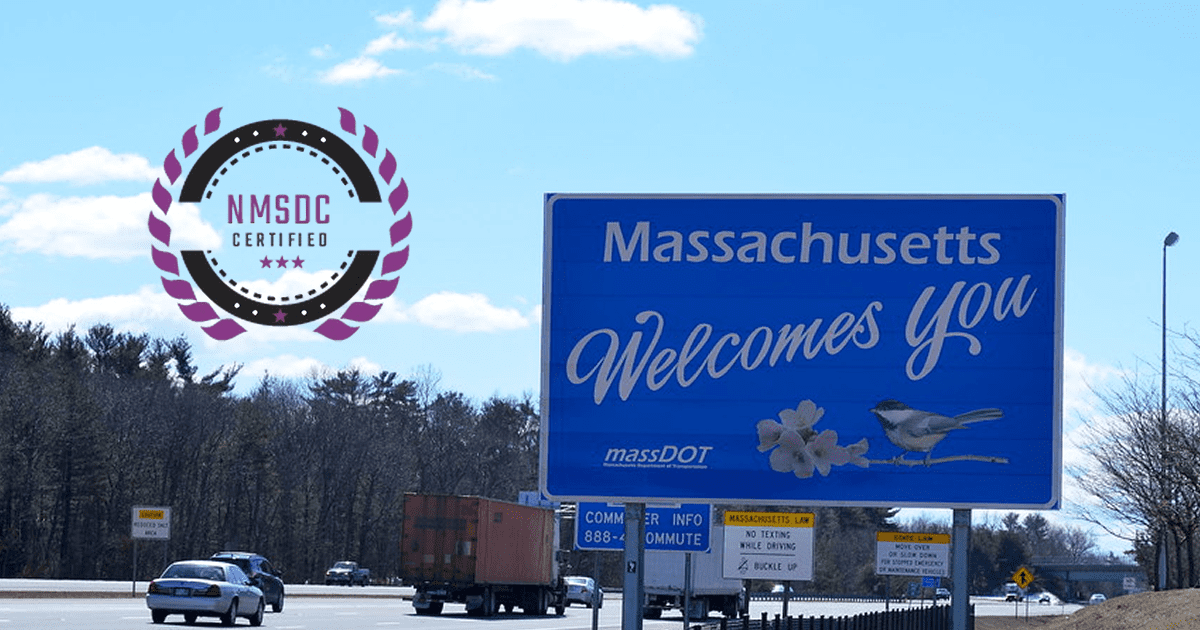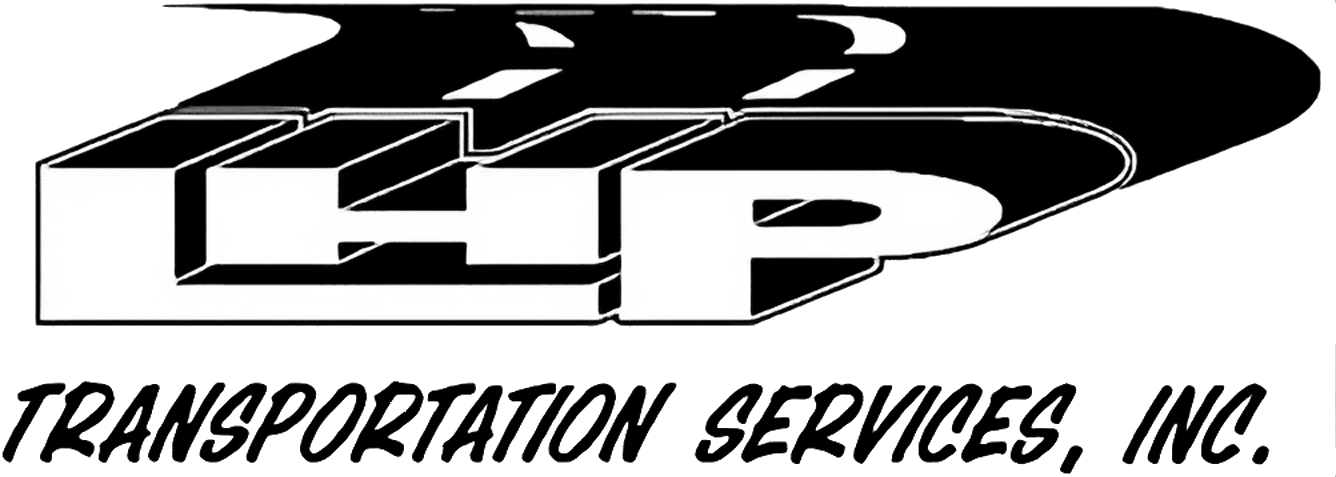
Supporting Minority-Owned Logistics in Massachusetts: A Spotlight on LHP Transportation Services and Tax Benefits
Minority-Owned Logistics for Massachusetts
Supporting minority-owned businesses in the logistics industry is crucial for fostering diversity, equality, and economic growth. By providing opportunities for minority-owned logistics companies, we can promote inclusivity and create a level playing field for all businesses. Minority-owned businesses often face unique challenges and barriers to entry, such as limited access to capital, networks, and resources. Supporting these businesses helps to break down these barriers and create a more equitable business environment. Additionally, minority-owned logistics companies can bring fresh perspectives, innovative ideas, and cultural understanding to the industry, leading to more creative solutions and better customer service.
For example, consider the case of a minority-owned logistics company in Massachusetts that specializes in last-mile delivery services. This company understands the unique needs and preferences of the local community, including language, culture, and transportation infrastructure. By leveraging this knowledge, they can provide tailored delivery solutions that meet the specific requirements of their diverse customer base. This not only enhances customer satisfaction but also contributes to the overall growth and development of the logistics industry in Massachusetts.
What is the significance of supporting minority-owned businesses in the logistics industry?
Supporting minority-owned businesses in the logistics industry is significant for several reasons. Firstly, it promotes diversity and inclusion, which are essential in today’s business landscape. By providing opportunities for minority-owned logistics companies, we ensure that a wide range of perspectives, ideas, and experiences are incorporated into the industry. This diversity leads to more innovative solutions and better problem-solving capabilities.
Secondly, supporting minority-owned logistics companies helps to address the historical disadvantages and systemic barriers that these businesses often face. Many minority-owned businesses struggle to access capital, networks, and resources, which hinders their growth and sustainability. By providing support and opportunities, we can help level the playing field and create a more equitable business environment.
Thirdly, minority-owned logistics companies often have a deep understanding of the communities they serve. They are familiar with the local culture, language, and transportation infrastructure, which enables them to provide tailored services that meet the specific needs of their customers. This localized approach can lead to improved customer satisfaction and loyalty.
In summary, supporting minority-owned logistics companies in Massachusetts is significant because it promotes diversity, addresses historical disadvantages, and allows for a more localized and customer-centric approach to logistics services.
Can you provide an overview of LHP Transportation Services as a minority-owned logistics company in Massachusetts?
LHP Transportation Services is a prominent minority-owned logistics company based in Massachusetts. Founded by Lisa Hernandez-Perez, LHP Transportation Services specializes in providing comprehensive transportation and logistics solutions for businesses across various industries. As a minority-owned company, LHP Transportation Services is committed to excellence, customer satisfaction, and promoting diversity and inclusion in the logistics industry. They have built a strong reputation for their reliability, efficiency, and personalized approach to meeting their clients’ transportation needs.
LHP Transportation Services offers a wide range of logistics services to meet the diverse needs of their clients. Some of the services they provide include freight transportation, warehousing, inventory management, distribution, and supply chain consulting. They have a dedicated team of logistics experts who work closely with clients to understand their unique requirements and develop customized solutions to optimize their supply chain operations. Whether it’s managing transportation routes, coordinating shipments, or ensuring timely delivery, LHP Transportation Services strives to provide efficient and cost-effective logistics services.
One example of the services offered by LHP Transportation Services is their expertise in temperature-controlled logistics. They have a fleet of refrigerated trucks and warehouses equipped with state-of-the-art temperature control systems. This allows them to handle sensitive goods, such as pharmaceuticals, food products, and perishable items, with the utmost care and precision. Their experienced team ensures that the temperature-sensitive products are transported and stored under the required conditions, maintaining their integrity and quality throughout the supply chain.
In summary, LHP Transportation Services is a minority-owned logistics company in Massachusetts that provides a wide range of comprehensive logistics services. With their commitment to excellence, customer satisfaction, and diversity, they are a valuable player in the logistics industry in Massachusetts.
What services are offered by LHP Transportation Services?
LHP Transportation Services offers a variety of logistics services to meet the diverse needs of their clients. Some of the key services provided by LHP Transportation Services include:
- Freight Transportation: LHP Transportation Services specializes in the transportation of goods, whether by road, air, or sea. They have an extensive network of carriers and logistics partners, allowing them to handle shipments of various sizes and requirements.
- Warehousing: LHP Transportation Services offers warehousing solutions to help businesses store their inventory efficiently. Their warehouses are equipped with advanced security systems and inventory management technology to ensure the safety and accuracy of stored goods.
- Inventory Management: LHP Transportation Services provides inventory management services to help businesses streamline their supply chain operations. They use advanced software systems to track inventory levels, manage stock rotation, and optimize order fulfillment processes.
- Distribution: LHP Transportation Services offers distribution services to help businesses deliver their products to customers efficiently. They have expertise in managing transportation routes, coordinating shipments, and ensuring timely delivery.
- Supply Chain Consulting: LHP Transportation Services has a team of logistics experts who provide supply chain consulting services. They work closely with clients to understand their unique requirements and develop customized solutions to optimize their supply chain operations. This includes identifying areas for improvement, implementing cost-saving strategies, and enhancing overall supply chain efficiency.
In summary, LHP Transportation Services offers a comprehensive range of logistics services, including freight transportation, warehousing, inventory management, distribution, and supply chain consulting. Their expertise and dedication to customer satisfaction make them a trusted partner for businesses in Massachusetts.
What tax benefits and incentives are available for minority-owned businesses in Massachusetts?
Minority-owned businesses in Massachusetts can benefit from various tax benefits and incentives. The Supplier Diversity Office (SDO) offers certification for Minority-Owned Business Enterprises (MBEs) and Women-Owned Business Enterprises (WBEs) [1]. This certification can provide access to procurement opportunities, including government contracts, where there may be set-asides or goals for working with minority-owned businesses. Additionally, certified MBEs and WBEs can take advantage of tax incentives, such as tax credits, exemptions, and deductions, that are specifically designed to support and promote the growth of minority-owned businesses.
By obtaining certification as an MBE or WBE through the Supplier Diversity Office (SDO), minority-owned logistics companies in Massachusetts can benefit from tax benefits. This certification opens doors to various procurement opportunities, including government contracts, where tax incentives may be available. By participating in government contracts, minority-owned logistics companies can access tax credits, exemptions, or deductions that can significantly reduce their tax burden. These tax benefits can help to lower operating costs, increase profitability, and provide a competitive advantage in the logistics industry.
For example, a minority-owned logistics company in Massachusetts that is certified as an MBE can bid for government contracts that have specific set-asides for minority-owned businesses. If they secure such a contract, they may be eligible for tax credits on the income generated from that contract. This can result in substantial tax savings, allowing the company to invest in its growth, expand its operations, or offer competitive pricing to attract more clients.
In summary, minority-owned logistics companies in Massachusetts can benefit from tax benefits and incentives by obtaining certification as an MBE or WBE. These certifications provide access to procurement opportunities and open the door to tax credits, exemptions, or deductions that can help reduce operating costs and increase profitability.
Are there any specific requirements or certifications for minority-owned logistics companies in Massachusetts?
Yes, minority-owned logistics companies in Massachusetts must obtain certification as an MBE or WBE through the Supplier Diversity Office (SDO). The SDO is the certifying agency for M/WBEs (Minority/Women-Owned Business Enterprises) for the Massachusetts Department of Environmental Protection (MassDEP). Additionally, for projects and contracts funded by the U.S. Department of Transportation (USDOT), certification as a Disadvantaged Business Enterprise (DBE) through the Massachusetts Department of Transportation (MassDOT) is required. These certifications demonstrate the company’s minority or women ownership and can provide access to various business opportunities, including government contracts.
The certification process typically involves submitting an application, providing supporting documentation, and undergoing a review by the certifying agency. The agency evaluates factors such as ownership, control, and management of the business to ensure that it meets the criteria for certification. Once certified, the minority-owned logistics company can showcase their status as a certified MBE or WBE and take advantage of the opportunities and benefits that come with it.
For example, a minority-owned logistics company in Massachusetts that obtains MBE certification can leverage this certification to demonstrate their commitment to diversity and inclusion. This certification can help them differentiate themselves from competitors and attract clients who prioritize working with minority-owned businesses. Additionally, MBE certification can open doors to procurement opportunities, including government contracts, where there may be set-asides or goals for working with minority-owned businesses.
In summary, minority-owned logistics companies in Massachusetts must obtain certification as an MBE or WBE through the Supplier Diversity Office (SDO) or as a DBE through MassDOT. These certifications demonstrate the company’s minority or women ownership and provide access to various business opportunities.
How can I find certified minority-owned logistics companies in Massachusetts?
To find certified minority-owned logistics companies in Massachusetts, the Supplier Diversity Office (SDO) maintains a searchable directory of certified Minority-Owned Business Enterprises (MBEs) and Women-Owned Business Enterprises (WBEs). This directory allows individuals and organizations to find certified minority-owned logistics companies in Massachusetts. By utilizing this directory, individuals and businesses can easily connect with certified minority-owned logistics companies and explore potential partnerships or business opportunities.
For example, if a business in Massachusetts is looking for a minority-owned logistics company to handle their transportation and distribution needs, they can search the SDO directory for certified MBEs or WBEs in the logistics industry. The directory provides relevant information about each certified company, including contact details, areas of expertise, and certification status. This makes it easier for businesses to identify and connect with certified minority-owned logistics companies that meet their specific requirements.
In summary, the Supplier Diversity Office (SDO) maintains a searchable directory of certified minority-owned logistics companies in Massachusetts. This directory is a valuable resource for individuals and businesses looking to connect with certified minority-owned logistics companies and explore potential partnerships or business opportunities.
What is the Disadvantaged Business Enterprise (DBE) Program and how does it relate to minority-owned businesses in the logistics industry?
The Disadvantaged Business Enterprise (DBE) Program is a federal program that aims to create a level playing field for minority-owned businesses in transportation-related industries, including the logistics industry. The program requires recipients of federal funds, such as state transportation agencies, to establish goals for the participation of DBEs in their contracts. DBE certification is required for businesses to be eligible for these opportunities. By participating in the DBE Program, minority-owned businesses in the logistics industry can access a broader range of contracting opportunities and benefit from the program’s initiatives to promote diversity and inclusion.
The DBE Program is particularly relevant for minority-owned logistics companies in Massachusetts that seek to work on transportation projects funded by the U.S. Department of Transportation (USDOT). These projects include highway construction, transit systems, airports, and other transportation infrastructure. By becoming certified as a DBE through the Massachusetts Department of Transportation (MassDOT), minority-owned logistics companies can demonstrate their eligibility to participate in these federally funded projects.
For example, a minority-owned logistics company in Massachusetts that is certified as a DBE can bid for contracts related to transportation infrastructure projects funded by the USDOT. This certification provides them with a competitive advantage as these contracts often have specific goals or set-asides for DBEs. By participating in these projects, minority-owned logistics companies can gain valuable experience, expand their network, and enhance their reputation in the industry.
In summary, the Disadvantaged Business Enterprise (DBE) Program is a federal program that aims to create opportunities for minority-owned businesses in transportation-related industries, including the logistics industry. By becoming certified as a DBE, minority-owned logistics companies in Massachusetts can access a broader range of contracting opportunities and benefit from the program’s initiatives to promote diversity and inclusion.
What are the goals set by MassDEP for minority-owned businesses in the logistics industry?
The Massachusetts Department of Environmental Protection (MassDEP) has set goals for the utilization of Minority-Owned Business Enterprises (MBEs) and Women-Owned Business Enterprises (WBEs) in various categories, including construction, services, goods, and equipment. These goals are established to provide opportunities for minority-owned businesses in the logistics industry to participate in MassDEP-funded projects and contracts.
For example, MassDEP may set a goal for a certain percentage of the total contract value to be awarded to certified MBEs or WBEs. This goal ensures that minority-owned businesses have a fair chance to compete for and secure business opportunities with MassDEP. By setting these goals, MassDEP promotes the inclusion and growth of minority-owned businesses in the logistics industry and contributes to a more diverse and equitable business environment.
In summary, MassDEP has set goals for the utilization of Minority-Owned Business Enterprises (MBEs) and Women-Owned Business Enterprises (WBEs) in various categories within the logistics industry. These goals aim to provide opportunities for minority-owned businesses to participate in MassDEP-funded projects and contracts, promoting diversity and inclusion in the industry.
What is the process for requesting a waiver for the goals set by MassDEP for minority-owned businesses?
If a bidder is unable to meet the goals set by MassDEP for minority-owned businesses in a particular project or contract, they can submit a Request for Waiver Form along with supporting documentation. MassDEP will review the waiver request and determine whether it will be granted. If the waiver is not granted, the bid may be rejected. The waiver process allows bidders to provide valid reasons for not meeting the goals and ensures a fair evaluation of their circumstances. MassDEP’s goal is to strike a balance between promoting minority-owned businesses and considering the practical limitations that may arise in certain situations.
For example, a minority-owned logistics company bidding for a MassDEP-funded project may encounter challenges in meeting the specific goals set by MassDEP due to factors such as project scope, timing, or limited availability of certified MBEs or WBEs in a particular region or industry. In such cases, the company can submit a Request for Waiver Form, explaining the reasons why they are unable to meet the goals. The waiver request should be supported by relevant documentation, such as evidence of outreach efforts or a detailed explanation of the circumstances. MassDEP will review the request and make a determination based on the provided information.
In summary, if a bidder is unable to meet the goals set by MassDEP for minority-owned businesses in a project or contract, they can request a waiver by submitting a Request for Waiver Form with supporting documentation. MassDEP will review the waiver request and make a determination based on the circumstances presented.





